Parking heater, electric heating mat, wood stove and Co.
who outside the main season When you are out and about, you can admire nature in its most beautiful autumn colors or be enchanted by the snow-covered mountain peaks. But the temperatures sometimes drop below freezing at night Feet get cold and not only Gfrörni start whining in the camper at night. You can compensate for a few degrees Celsius with a wool sweater and a thick down comforter, but the fun is over when you get up at the latest. The solution to the problem is one Auxiliary heating in the camper.
A parking heater in the camper: do you need it at all?
There are many ways to heat the camper and how it all works is the question, but more on that later. Before going into the details, it is worth asking the question: do i need a heater in the camper at all? There are some die-hard campers who would probably answer with a resounding no. But why it would still be nice to have one depends mainly on the Travel times or the Above sea level on which one moves, and of course also from personal feeling of cold. In late summer it can get quite chilly in the mornings at the Klausen Pass, and praise is due to those who snuggle up under the thick one in the morning before sunrise down comforter dares. A heater is therefore primarily simply a comfort on the journey with the camper.
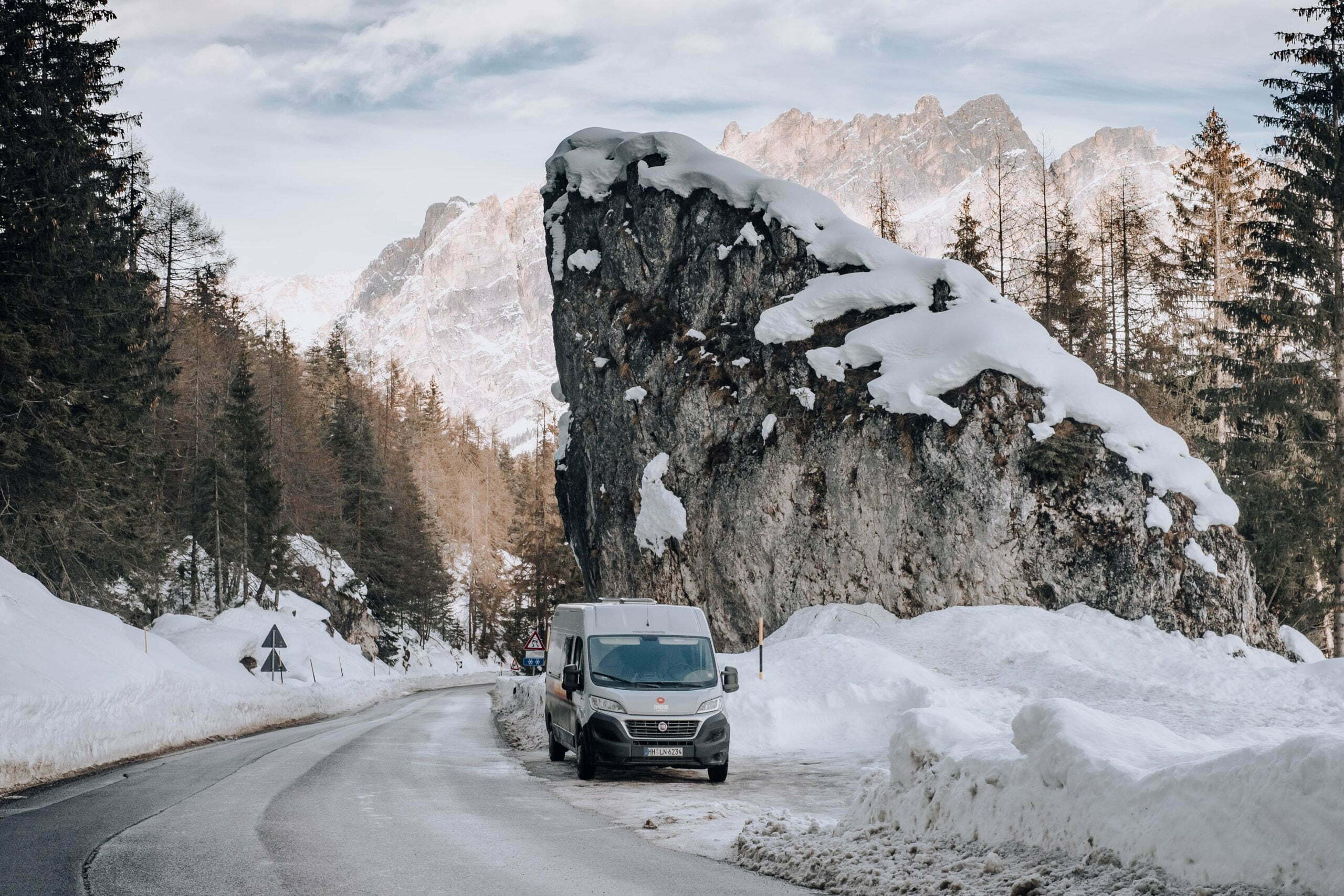
Especially in winter, but also in summer, the heating can still be advantageous if you catch one or even worse several rainy days. the Air is cold-wet and everything gets clammy in the camper. On the second day at the latest, one makes oneself musty smell wide. The heater not only provides cozy warmth, but also dries the air. In other words, heating in combination with ventilation improves this indoor climate immensely.
Insulate campers instead of heating them
Yeeeeeeeeeeeeeeeeeeeeeeeee There are quite a few who use kilos and layers of insulation material, like Armaflex, stick it on the tin body like there's no tomorrow. In the end, however, is and remains one well insulated camper a camper without heating. In other words, in summer it might not get quite as hot in the camper or in winter it might get cold "slower" because the isolated spots in the camper are less radiate heat. In the end, however, the panes and windows take care of you decent heat loss and zack it's just as cold inside as outside.
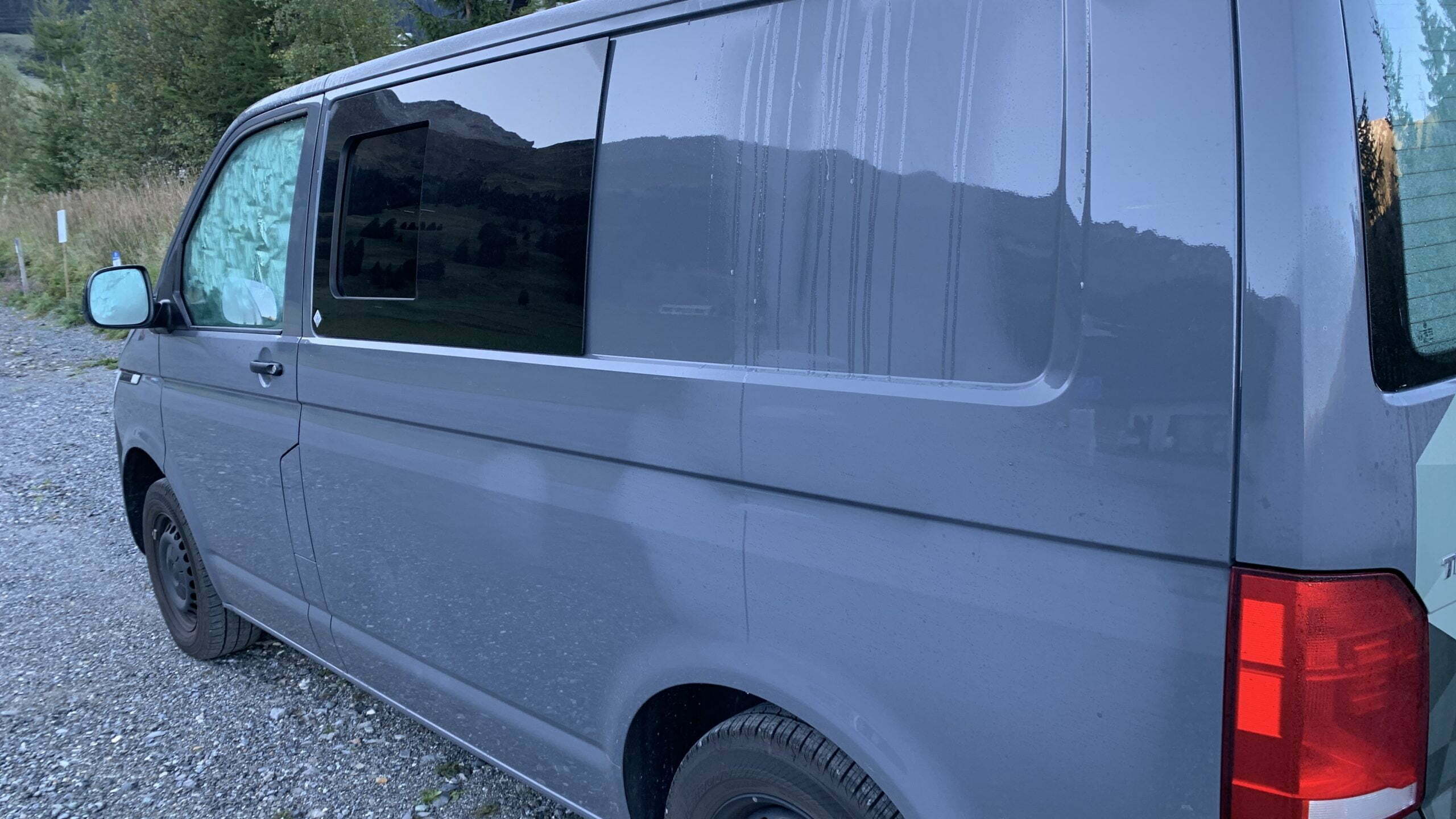
So maybe only heat and not insulate at all? Neither. We don't do without insulation when expanding our camper, but above all because it is for a wonderful noise isolation cares. Another big advantage is also that you can deal with the isolation Heat and cold bridges reduced and you can reduce the formation of condensation even when the heating is not on. With that you have it moisture balance simply better in hand.
Which heating in the camper: wood, gas, diesel or electricity
There is for sure no "best" heating for the camper, since the right choice is primarily aimed at the needs of campers and campers. But there are one or the other method that you might be better off avoiding.
Let's start with the latest trend: Heating with wood in the camper. For once, no skylight is sawn into the roof, but a classic one chimney and in the camper, which is built from a lot of easily combustible material, then stands wood stove. Firebrick, ash drawer and chic glass pane included. Wood is cheap and, above all, can be found almost anywhere, so this might come in handy if you've always wanted to smash the Beargrills ax into a twig. However, that is Carbon monoxide and fire safety issue a huge topic to bring into the house. Installation errors or leaking seals can be devastating. So if you choose the wood in front of the camper, you can go on one gas sensor and a well-sized one fire extinguisher don't give up. Otherwise help the manufacturers, how Tiny stove will be happy to answer any questions you may have about installation and safe handling.
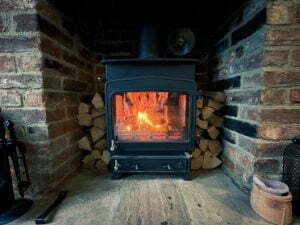
Electric heaters in the form of small fan heaters are quite efficient and the motorhome warms up quickly. However, it usually needs 230 V with a well-sized inverter or shore power, because the Power consumption is not necessarily low. The same applies infrared heating foils, i.e. the classic underfloor heating that is installed under the floor, or infrared heaters that are mounted on the wall. If you are not on a campsite, then hats off to the capacity of the board battery, which lasts the whole night... So if you are connected to shore power, you should definitely ask the campsite operator whether the Electricity paid at a flat rate or billed by kW...not that the heating cost more than the overnight stay itself!
Typical mobile homes are often included Gas combination devices equipped, such as the Trump Combi 4 or Trump Combi 6. This has the advantage that you can not only heat the camper and cook in it, but also heat the water for showering and the Run fridge on gas can. Because gas as a fuel poses an unseen hazard, however, there is one when it comes to installation and maintenance strict security requirements and requirements, which may vary from country to country. Without annual seal from gas tester so nothing works. In addition, the heaters weigh a lot and, depending on the size of the gas cylinder, need a lot of space. If the gas bottle is then empty, it is too not always without problems to new gas to come - especially if you are traveling abroad. As an alternative to the gas installation in the mobile home, a mobile butane gas heater is also suitable for emergencies, which works like a perfectly normal gas cooker with gas cartridges > 250 g (no obligation to test).
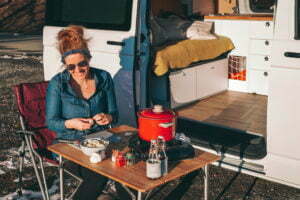
There are two different systems for the auxiliary heaters. Firstly, the water heater, in which a closed water circuit is heated, and the air heater, in which the heating medium is the circulating air in the camper.
The installation of a water heater is compared to the classic air heater to some more effort as there is one heating circuit with a water-glycol mixture is required - anti-freeze is a must. Water heaters - i.e. a non-electrical auxiliary heater - are therefore mainly found in better equipped vehicles as part of the engine cooling circuitto warm up the engine faster. This not only protects the engine, but also ensures lower fuel consumption in winter and at the same time the windows are also de-iced faster. In the camper will only rarely retrofitted with a water heater, but this is more likely to happen with boats. So there is one more even heat distribution throughout the boat and you can also connect the water heater to kill two stone with one fly.
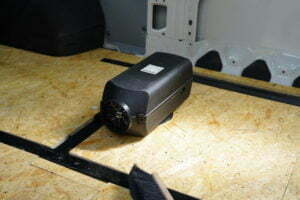
The means of choice for campers is therefore the air heater, which usually runs on diesel - as commercial vehicles too 99 % fueled with diesel will. There are also petrol air heaters and their function differs from that Diesel air heater Not. If you think you have to pay dearly for the heat given the current diesel and petrol prices, you are wrong. Ultimately, the consumption is quite low (depending on the power level 100 to 250 mL per hour with a 2kW heater) and compared to the gas consumption of a gas heating system, sometimes cheaper in the long term. With the professional installation of an air heater you do not need to be ahead of the curve diesel smell However, depending on the installation location, should be feared in the vehicle noise level let in. The heaters are nothing more than small motors with fans, which makes noise accordingly. But with Air intake silencer can be remedied if necessary.
Conclusion on the subject of heating in the camper
So if you build an individual camper, you will usually use the diesel parking heater. The installation is not only easier, but also the Costs are compared to the gas installation advantageous. And at the latest when it's in the Alps or elsewhere starts to fall, the non-heated campers secretly want a heater, while the neighbors Heating cheerfully for a cozy room climate cares.
Side note: Auxiliary heaters not only make sense in mobile homes, but can also be used in cars, commercial vehicles and trucks higher comfort worries. If the heating is on before you want to drive off, there is no disc scratching and also no icy hands at the wheel. Cozy warmth as soon as you get into the vehicle and without the engine running! If you prefer to enjoy your morning coffee in your pyjamas, you can turn on the parking heater using a pre-programmed heating timer, remote control or control a smartphone. We highly recommend the Autoterm heaters. On request, we will also be happy to install Eberspächer or Webasto parking heaters. We guarantee that professional installation and also offer service for already installed heaters.
more comments

Can you expand a camper ecologically?
Is it possible to convert a campervan ecologically? In other words, what does "ecological" even mean? We recently had an enquiry about how "ecological our felt is" and

Garbage, garbage and more garbage!
Rubbish, rubbish and more rubbish! All about waste when travelling. Unfortunately, it will have happened to everyone at one time or another
